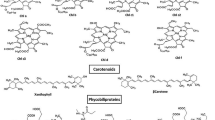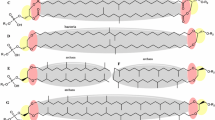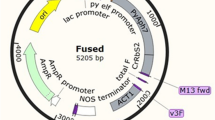Abstract
A key regulatory mechanism underlying the switch between aerobic and anaerobic metabolism amongst anoxia-tolerant marine molluscs is reversible protein phosphorylation. To assess the role of cAMP-dependent protein kinase (PKA) in aerobic–anaerobic transitions, the effects of anoxia on the activity and subcellular distribution of PKA were assessed in foot and hepatopancreas of the marine periwinkle, Littorina littorea. Exposure to N2 gas at 5 °C caused a rapid decline in the percentage of total enzyme present as the free catalytic subunit (PKAc) in both tissues; the percentage of PKAc fell from ∼30% in controls to 3% after 1 h anoxia and remained low over 72 h. Total PKA also fell by 30% after 72 h anoxia in hepatopancreas but rebounded during aerobic recovery. Freezing at −8 °C elicited parallel results for both percentage of PKAc and total PKA, suggesting that PKA responses to freezing were stimulated by the ischemia that develops when hemolymph freezes. Anoxia also led to a shift in PKA subcellular distribution in hepatopancreas (but not in foot), the percentage of total PKA activity associated with the nuclear fraction dropping from 25% in controls to 8% in 12 h anoxic snails with opposite changes in the cytosolic fraction. The catalytic subunit (PKAc) of foot PKA was purified to a final specific activity of 63.5 nmol phosphate transferred per minute per milligram protein. Enzyme properties included a molecular weight of 33 to 35 kDa, an activation energy from Arrhenius plots of 65.1 ± 4.8 kJ mol−1, and substrate affinity constants of 151 ± 6 μM for the phosphate acceptor, Kemptide, and 72 ± 9 μM for Mg.ATP. Activity was strongly reduced by mammalian PKA inhibitors (H-89, PKA-I), by neutral chloride salts (I50 values 165 to 210 mM) and by NaF (I50 62 mM). Reduced PKA activity under anoxic or freezing conditions would facilitate the observed suppression of the activities of numerous enzymes that are typically PKA-activated and thereby contribute to the overall anoxia-induced metabolic rate depression.
Similar content being viewed by others
Author information
Authors and Affiliations
Additional information
Received: 19 November 1997 / Accepted: 30 September 1998
Rights and permissions
About this article
Cite this article
MacDonald, J., Storey, K. Cyclic AMP-dependent protein kinase: role in anoxia and freezing tolerance of the marine periwinkle Littorina littorea. Marine Biology 133, 193–203 (1999). https://doi.org/10.1007/s002270050458
Issue Date:
DOI: https://doi.org/10.1007/s002270050458




